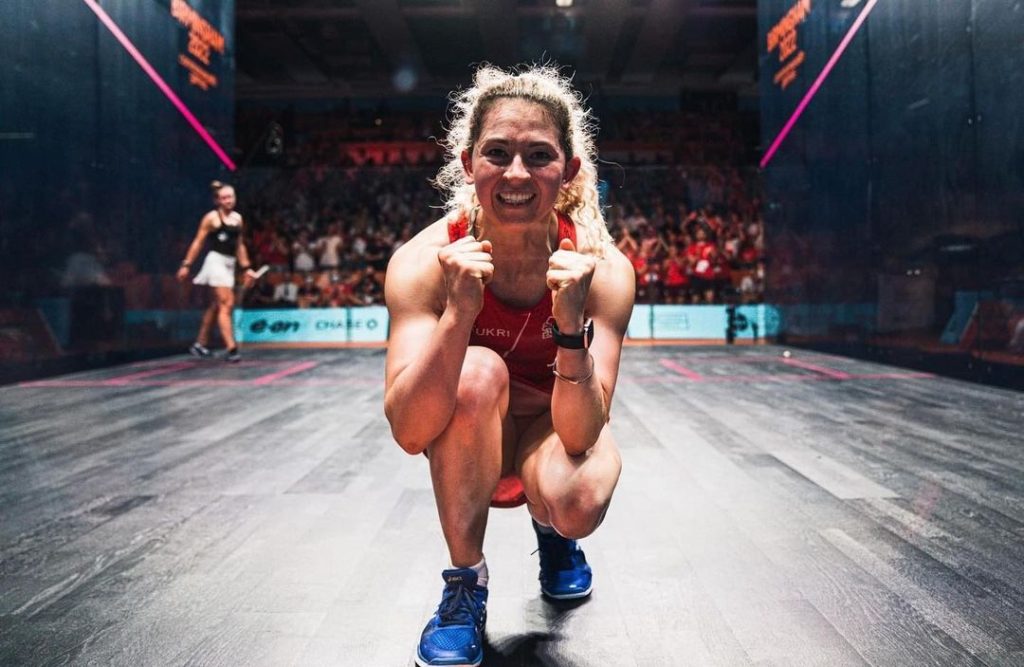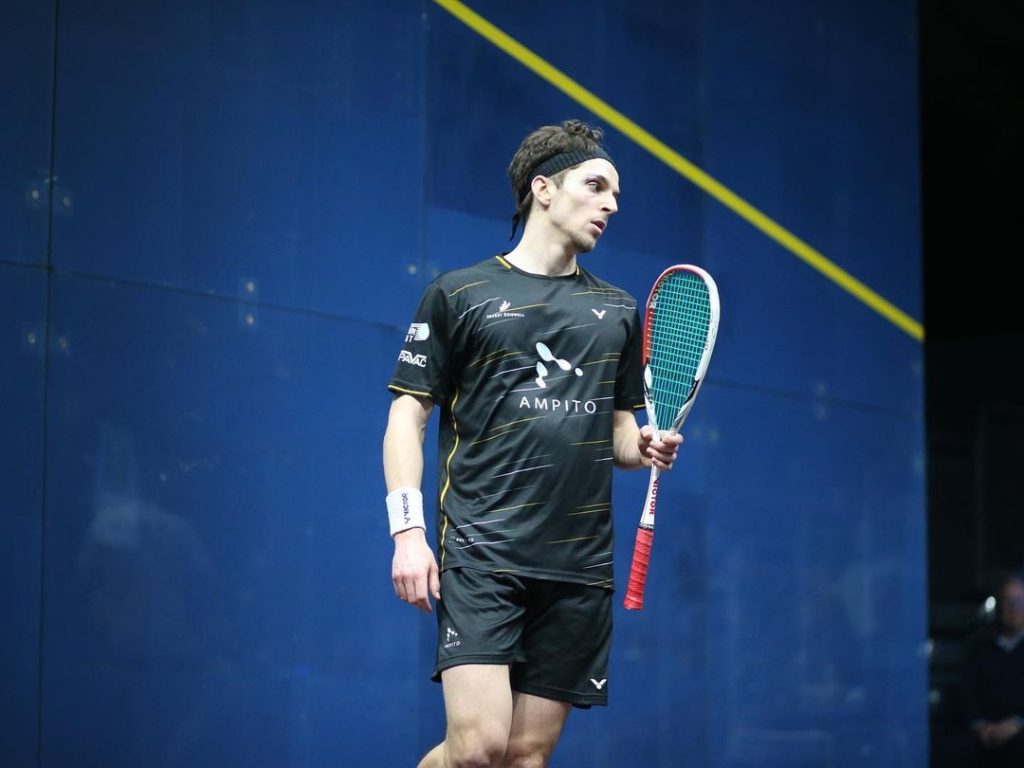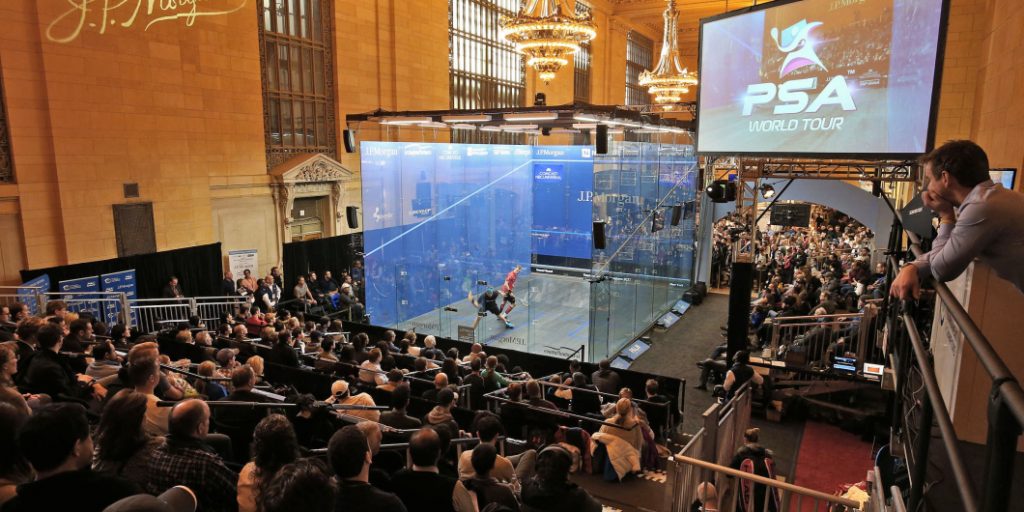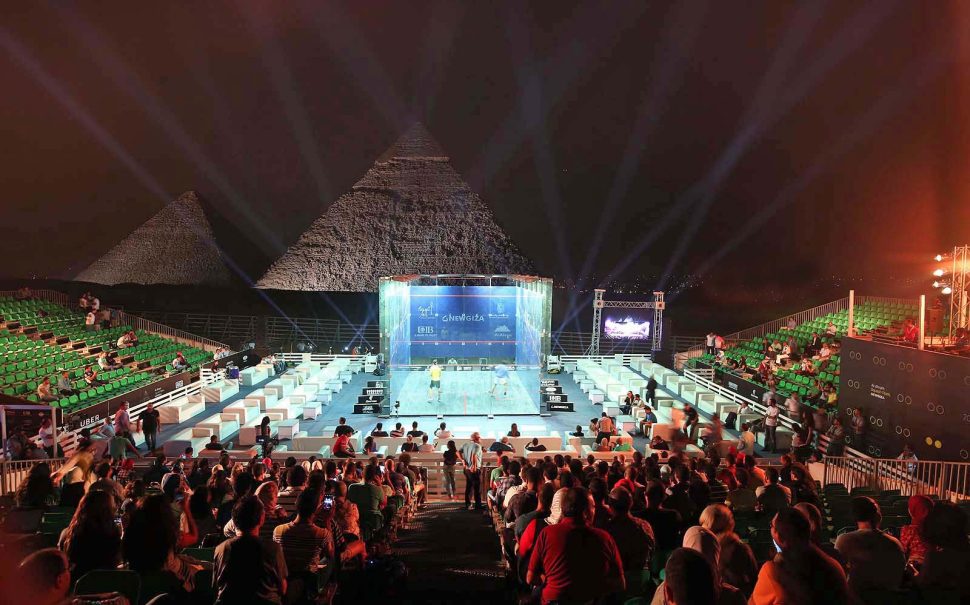“To say you are an Olympian is, I think, just incredible.”
Squash making its Olympic debut at the 2028 Los Angeles Games is a dream come true, said England’s Commonwealth champion Georgina Kennedy.
After years of the century-old sport being placed on the back burner, including four successive failures to gain entry into the Olympics, Kennedy had one dominant theory – squash would never become an Olympic sport.
But on October 16 the International Olympic Committee green-lit the proposal for squash, alongside cricket, lacrosse, flag football and baseball/softball, to be included at Los Angeles in five years’ time.
Kenndy said: “I can’t believe it because I genuinely never thought it would get in. So I was done with getting my hopes up.”
“I know it’s a lot of people’s dreams, but seriously, my dream was to be an Olympian.
“When I was young, I had the Olympic flags on my bedsheets and curtains.”

When Kennedy, 26, won the Commonwealth Games in Birmingham in 2022 she thought she’d achieved the highest accolade in her sport.
The world number six added: “When I won, I had those feelings of, oh my God, this is the closest I’m ever going to get to achieving that dream.
“It was so emotional because I never thought that an Olympic Games would be possible.”
But she was also humbly hesitant to assume she’d automatically make the cut for LA.
Kennedy added: “For me in five years, I hope to be at the top of my game.
“The goal is to try to keep my body healthy in order to be selected for Team GB.
“It’s going to be really hard to get in the team, so the goal is to stay British number one and keep my ranking as high as possible.
“I’ll be 31 years old, the 2028 Olympics is going to be my one and only shot.
“There’s a lot of pressure in that sense.”
Lucky for her, that is the peak athlete age in squash, according to the Journal of Human Sport and Exercise.
One reason for squash’s acceptance stems from its popularity in the United States, where there was an 87 per cent increase in participation between 2015 and 2019.
On the United States’ influence on the decision, she said: “I think a lot of stars aligned for squash.”
Kennedy spent three years studying Psychology at Harvard University and witnessed the incredible growth of the junior programmes across the country.
“I think if it’s possible in America, it’s possible all over the world,” she added.

Fellow England professional, Charlie Lee, who was first coached by his ex-professional father Danny, said that IOC’s decision came as a shock.
Lee, 25, explained: “It’s a major source of new motivation for sure, I think plenty of people will be looking to extend their careers to be able to compete in LA.
“I’ll continue my process as normal and hopefully that takes me towards that.
“The multiple exclusions ended in real major disappointment, we felt deserving of a place the whole time.”
But the question of whether squash will be on the roster beyond the City of Angels remains to be seen.
Kingston-upon-Thames-born Lee added: “For it to remain in the Olympics, it’s really important that everyone involved doesn’t rest on their laurels and think it will always be included now.
“Now is the time to capitalise and really put a big effort into getting people back into the sport.”
The negotiations for acceptance, though, were not straightforward.
After multiple failed bids across a 20-year-period, the Professional Squash Association (PSA) and World Squash finally came together with US squash to make their case for the Los Angeles Olympics.
PSA CEO Alex Gough, 58, said: “It’s been a fantastic collaboration between the professional tour and International Federation, there has been a lot that has gone on in the background.
“This time round we were told very early on, that the IOC wanted everything to be behind closed doors. So no big campaigns by any sports on the proposed list.
“And I think it suited squash to have a process where no one’s spending millions of dollars on the bidding process.”
“The ability to pick up the glass court and put it anywhere in the world makes squash a perfect Olympic event.”
“It’s a real showcase for the city. We’ve had the court in front of the pyramids in Giza and even in the middle of Grand Central station in Manhattan.”

The sport prioritises gender equality by having full parity in prize money at the top level.
When quizzed on the steps squash needs to take to reach the Brisbane 2032 Olympics, Gough said: “Australian squash has a strong foundational base.
“But we’ll make sure our TV broadcast numbers stack up, all the social media keeps growing and the prize money goes from strength to strength.”
Since the approval in 2014 of the Olympic Agenda 2020 reforms, the IOC allows Organising Committees to make a proposal for the inclusion of additional sports for their specific edition of the Games.
A IOC spokesperson said: “The choice of these five new sports is in line with the American sports culture and will showcase iconic American sports to the world, while bringing international sports to the United States.”
Featured image by Steve Line licenced under Creative Commons Attribution-Share Alike 4.0 International
Other images provided by Georgina Kennedy and Charlie Lee.

